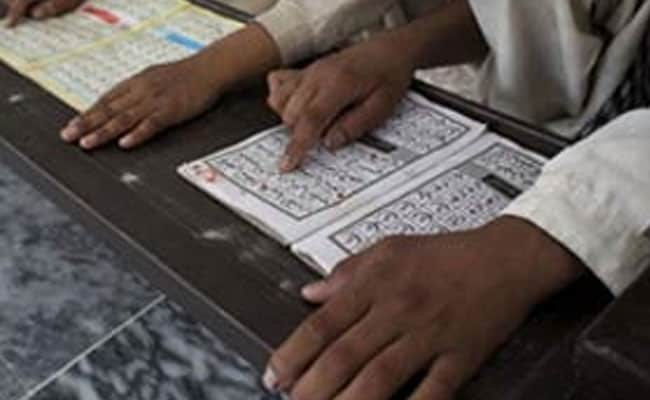[ad_1]

In this petition, it was stated that the court wrongly saw that madrasas cannot teach religion. (agent)
New Delhi:
The Supreme Court on Tuesday issued a notice to the concerned respondents including the Government of Assam in the case against the decision of the Gauhati High Court that the madrasas are government schools and are fully managed by the State of Assam and cannot be allowed to run. give religious instructions.
The order was passed by Justices Ajay Rastogi and CT Ravikumar on 13 petitions.
The petitioner challenged the judgment dated February 4, 2022, passed by the Gauhati High Court which upheld the validity of the Assam Madrassa Education (State) Act, 1995 (repealed by the 2020 Act) and all consequential government orders.
The Supreme Court observed that Madrasahs, which are public schools that are fully controlled by the government through the states, fall under Article 28(1) of the constitution and, therefore, cannot be allowed to provide religious instruction.
The plaintiffs, including Imad Uddin Barbhuiya, said the Supreme Court wrongly found that the plaintiff’s madrasahs, which are government schools, cannot be allowed to offer religious instruction.
According to the petition, the Assam Madrassa Education (State) Act, 1995 (repealed by the 2020 Act) is limited only to the state paying salaries and providing reasonable benefits to teachers and non-teaching staff. who work in the madrasas as well as the administration, management and control of those madrasas.
In this request, it is stated that the land and the building of the madrasa are in the hands of the people who applied, and the costs of electricity and housing materials are paid by the applicant.
“The Abolition Act 2020 takes away the property along with the legal recognition of madrasa education and the repealed order dated 12.02.2021 issued by the governor abolished the “Assam State Board of Madrasas” formed in 1954. corresponding to the use of both legislative and executive powers and constitutes the denial of the Applicant’s madrasahs the ability to continue as madrasahs that provide religious education along with religious education,” said the petition.
The petitioner submitted that such violation of the ownership rights of the petitioner’s madrasas without providing adequate compensation is a direct violation of Article 30 (1A) of the Constitution of India.
“The operation of the stolen judgment results in the cancellation of the plaintiff’s madrasas as madrasas and prevents students from attending the previous courses of this school year,” said the plaintiff.
According to the petition, the respondents through the questionable Notice dated 12.02.2021 waived the right of the petitioner madrasas under Article 30(1) to ‘establish’ and ‘manage’ educational institutions. choice including their right to decide on their curriculum which is also based on their views on ways to preserve their religion or culture.
(Other than the headline, this story has not been edited by NDTV staff and is published from a syndicated feed.)
Video of the Day
Video: Beer-Guzzling Monkey Menaces Liquor Shops in UP
[ad_2]
Source link
